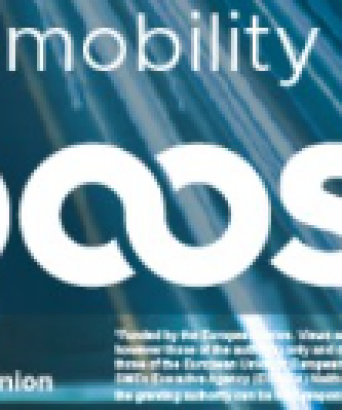The Global Gateway initiative launched by the European Commission in 2021 aims to develop infrastructure investments in partner countries in Asia, Latin America, Africa, and Europe’s neighbouring countries in the fields of digital, energy and transport, and strengthening health, education and research systems.
Global Gateway aims to mobilise up to EUR 300 billion in investments between 2021 and 2027. As part of a “Team Europe” approach, Global Gateway brings together the EU, Member States and their financial and development institutions, including the European Investment Bank (EIB) and the European Bank for Reconstruction and Development (EBRD), and aims to mobilise the private sector by leveraging investments in priority sectors. This approach aims to facilitate the mobilisation and pooling of technical expertise and financial resources to achieve greater efficiency and impact.
In concrete terms, between 2021 and 2027, Team Europe will mobilise up to EUR 300 billion in investments for sustainable and quality projects, taking into account the needs of partner countries and ensuring sustainable benefits for local communities. This will allow EU partners to develop their societies and economies, while creating opportunities for the private sector of EU Member States to invest and remain competitive.
Global Gateway is implemented through projects in Latin America and the Caribbean; the Middle East, Asia and the Pacific; and sub-Saharan Africa.
Priority sectors
Transport
Global Gateway will encourage investments in infrastructure that create sustainable, smart, resilient, inclusive and secure grids across all modes of transport. It will support networks providing connectivity with the trans-European transport network.
Ambition for 2030: Integrate African and European multimodal transport networks in accordance with regional and continental frameworks and adapt these networks to the economic potential of an African continental free trade area.
Climate and Energy
Investing in both climate change mitigation and resilience, as well as clean energy, is a necessity, but also a major economic opportunity in low- and middle-income countries.
Global Gateway supports this green transformation towards achieving the Sustainable Development Goals and commitments of the Paris Agreement on Climate Change. It promotes the exchange of green technologies and enhances energy security.
Digital
Through Global Gateway, the EU strengthens the links between Europe and the world and helps partner countries bridge the digital divide and further integrate into the global digital ecosystem.
Digital transformation is an important driver of sustainable development and offers great potential to amplify social and economic benefits in many sectors. However, the current rates of digitisation are very uneven: more than 3 billion people are not digitally connected, including many women. In line with the Sustainable Development Goals, digitalisation can foster better education, reduce inequalities, stimulate economic growth, research and innovation and support better governance.
A more digitised society requires the promotion of sustainability and the construction of a global, open, stable and secure cyberspace based on the rule of law, human rights and democratic values that leaves no one behind. Today, digital transformation is largely data-driven and a key factor in global competitiveness, with great potential for economic growth and development and innovative solutions.
Digital transformation is bringing rapid changes that affect our labour markets. With communications on how to shape Europe’s digital future and the digital compass decade by 2030, the EU has proposed a human-centred approach to digital transformation.
Health
Global Gateway will prioritise the security of pharmaceutical supply chains and the development of local manufacturing. COVID-19 revealed weaknesses in healthcare systems and the fragility of pharmaceutical supply chains. He also highlighted the great disparity in medical manufacturing capabilities around the world.
Continents must be able to make their own vaccines. Therefore, the EU is committed to preventing future health emergencies by building capacity around the world.
But health problems go beyond the pandemic. For example, Global Gateway will also facilitate investments in infrastructure and regulatory environment for the local production of medicines and medical technologies. This will help integrate fragmented markets and promote cross-border research and innovation in healthcare, helping us overcome diseases such as COVID-19, malaria, yellow fever, tuberculosis or HIV/AIDS.
Education and research
Global Gateway invests in quality education, including digital education, from a lifelong learning perspective, in line with the Sustainable Development Goals. Particular attention is paid to the inclusion of girls and women and other vulnerable groups who often have low school attendance. The project will help partner countries transform their education systems and address education, training and learning gaps at all levels.
It will also facilitate the mobility of students, staff, teachers and trainees, and strengthen networks and peer learning in higher education institutions. The extended Erasmus+ programme offers such opportunities to people from all over the world.
The EU is also working with partner countries to strengthen cooperation on research and innovation. Horizon Europe, the world’s largest publicly funded multilateral research and innovation programme, offers researchers and innovators outside Europe the opportunity to participate in collaborative EU-funded research and innovation actions.
Enhanced cooperation on space technologies and space applications under the EU Copernicus and Galileo/EGNOS programmes will contribute to supporting global efforts to adapt to climate change and extreme weather events, combat pollution, protect people, the environment and biodiversity, promote ocean governance and ensure sustainable agri-food systems.
Source of financing
EU and EU Member States will mobilise infrastructure development investments of up to €300 billion in the years 2021-2027.
This includes up to €135 billion worth of investments made possible by the EU and €145 billion of planned investment volumes by European financial and development finance institutions, complemented by grant financing.
European Fund for Sustainable Development +
Our new and main risk-sharing instrument for the period 2021-27 is the European Fund for Sustainable Development Plus (EFSD+). It will be 10 times bigger than its predecessor, the EFSD, applied globally.
It will cover €53 billion in guarantee volume for this period and is expected to leverage up to €232 billion of sustainable investments. Additional financing will be provided by grants to development finance institutions who will combine these, or ‘blend them’, with loans.
Under the EFSD+, the Commission uses ‘blending’ in sectors, markets and operations where the guarantee does not address the relevant bottlenecks. These can be both public and private sector operations.





